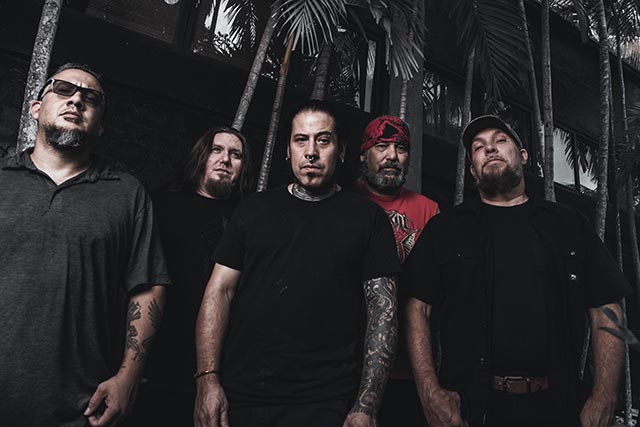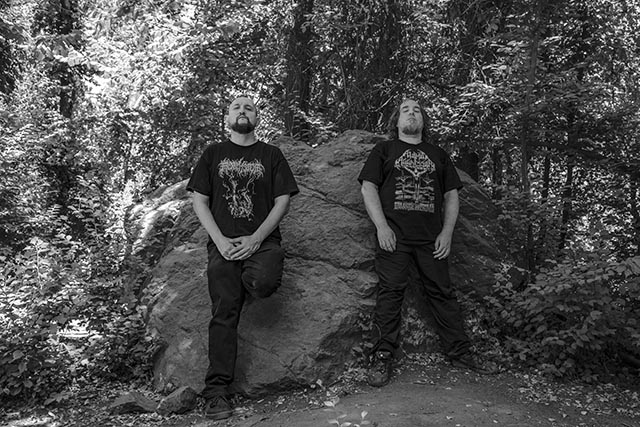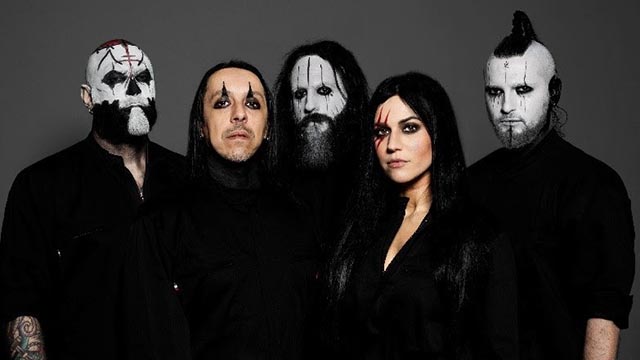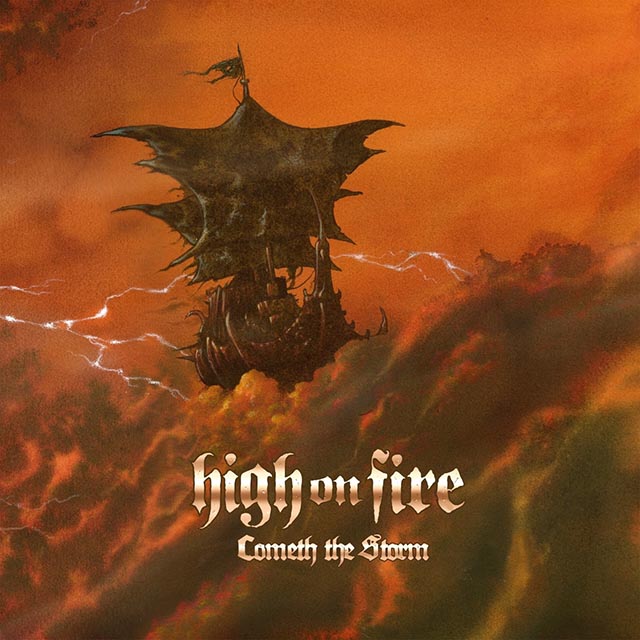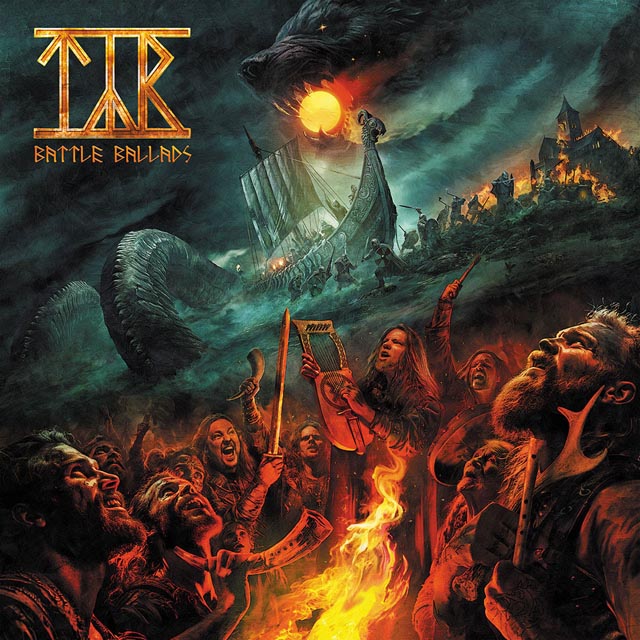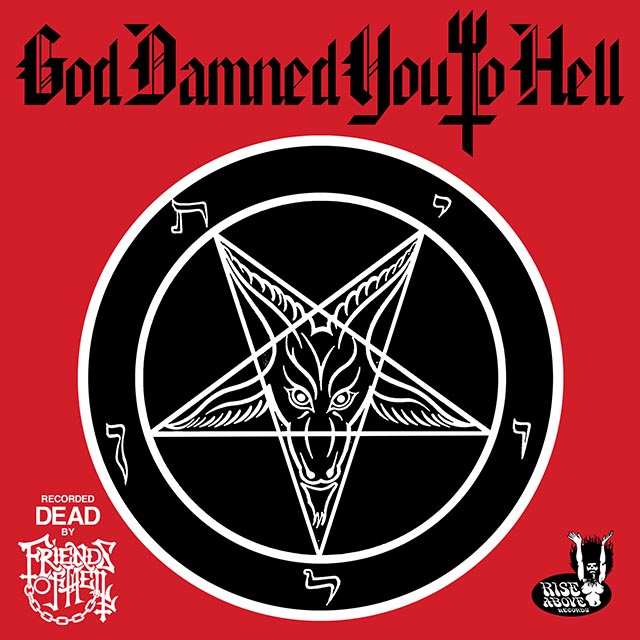
Two weekends ago, the 90s were alive and well in New York City: L7: Pretend We’re Dead had its world premiere at documentary film festival DOC NYC on November 11 (L7 celebrated with a secret gig afterward) and The Smart Studios Story had its New York premiere at Saint Vitus on November 13. The two Kickstarter-funded docs share little in common other than plentiful never-before-seen grunge-era archival footage, new interviews with Butch Vig, Donita Sparks and Shirley Manson, and Smart Studios – the Madison, Wisconsin, recording studio founded by future Garbage bandmates Vig and Steve Marker – where L7’s breakthrough album Bricks are Heavy was recorded.
Directed by Sarah Price (American Movie, The Yes Men) and produced by Blue Hats Creative, L7: Pretend We’re Dead begins with grainy home-movie footage of a band member shouting “Just shut up and fuck me, damnit!” in a dark car. This prank sets the tone for a film that’s more tour diary than documentary, jam-packed with funny self-shot moments from the road, studio and everywhere in between (think Pantera’s 3 Vulgar Videos from Hell). Interviews with guitarist/vocalist Sparks, guitarist/vocalist Suzi Gardner, bassist/vocalist Jennifer Finch and drummer Dee Plakas guide us chronologically through milestones in the band’s 16-year career (1985-2001) and 2015 reunion. Unfortunately, none of these interviews are on-camera and the years in between are not addressed.
We see plenty of L7 in archival videos and photos: their early days in the underground art punk East LA club scene, Sub Pop years embraced by Seattle’s burgeoning grunge scene and Nirvana, the “Pretend We’re Dead” music video shoot where a crane accident ripped half of Gardner’s ear off, the Rock for Choice benefit concerts they spearheaded to protect abortion rights and women’s health clinics, the infamous tampon-throwing incident at 1992’s Reading Festival, backstage antics at Lollapalooza with Nick Cave and the Bad Seeds, appearing on MTV’s Headbangers Ball, and hanging with their Hungry for Stink recording studio neighbors Mötley Crüe. Vig, Manson, Krist Novoselic, Exene Cervenka (X), Brody Dalle (The Distillers), Allison Wolfe (Bratmobile, Sex Stains), Louise Post (Veruca Salt) and others offer fan-like praise throughout rather than insights.
Poignant moments come during the band’s decline as Finch quits via a handwritten note mid-The Beauty Process album recording, they get dropped by their label the same day they play a huge show with KISS, and eventually Gardner quits, saying she feels like a 40-year-old “fuck-up” with no money or health insurance. Then, suddenly, it’s reunion time. The version that screened at DOC NYC wasn’t final, but this doc suffers from its amateurish feel and poor-quality clips from L7’s 90s heyday TV appearances. Still, fans and 90s grunge completists will savor this nostalgic time capsule when it’s released (still TBA).
 The Smart Studios Story is a much better film, tracing the underground Midwest alt rock music scene via Smart Studios’ 28-year-history (1983-2010) and its contributions to the 90s grunge explosion. Written, directed and edited by Wendy Schneider (CUT: Teens and Self-Injury), and produced by her company, Coney Island Studios, LLC, the film had its world premiere at SXSW this March and is the official film of Record Store Day (the DVD and the film’s vinyl companion soundtrack, American Noise Volume 1, was released November 25, Record Store Day Black Friday).
The Smart Studios Story is a much better film, tracing the underground Midwest alt rock music scene via Smart Studios’ 28-year-history (1983-2010) and its contributions to the 90s grunge explosion. Written, directed and edited by Wendy Schneider (CUT: Teens and Self-Injury), and produced by her company, Coney Island Studios, LLC, the film had its world premiere at SXSW this March and is the official film of Record Store Day (the DVD and the film’s vinyl companion soundtrack, American Noise Volume 1, was released November 25, Record Store Day Black Friday).
Schneider worked at Smart Studios for 18 years. Starting as an intern, she became an engineer and producer, eventually opening her own recording studio. While this film is personal to her and has an insider’s feel (she, Vig and Marker are also executive producers), it’s not her story. This is about the music, and the people and place behind that music.
Vig’s and Marker’s respective beginnings as teen tapeheads led them to unite in Madison over their common affinity for beer and recording. Drinking would lead to one of them saying, “Let’s get smart” – code for let’s rock out and record to four-track – thus, the studio name, which Vig is embarrassed about today. The songs were secondary for these two, and simply a vehicle for recording. Fixtures in the 80s DIY Madison punk scene, Marker worked security at club Merlyn’s, Vig played in Spooner (with future Garbage bandmate Duke Erikson) and the two formed Boat Records to self-release and record Spooner and other local bands they liked.
Smart Studios’ first location, described as an “acoustic nightmare,” was a warehouse with egg crates glued to the walls and no soundproofing. But Vig and Marker’s passion for 24/7 recording, DIY ethics and cheap rates yielded albums for area bands Killdozer, the Tar Babies, Ivory Library, The Singing Irishman, and Milwaukee’s Die Kreuzen. Local radio promotion on WORT, building a real studio at 1254 East Washington Avenue (where the studio remained until closing), and a successful trip to SXSW, helped them develop relationships with indie labels like Touch and Go Records. After Sub Pop Records co-founder Jonathan Poneman heard Killdozer’s Twelve Point Buck, produced by Vig, he started referring bands to Smart Studios – a welcome respite from Seattle, where bands could focus on recording with nothing but a soda machine filled with beer and Friendly’s Tavern across the street to distract them.
Interviews with Vig, Billy Corgan, and Jimmy Chamberlin delve into the recording of Smashing Pumpkins’ Gish and Dave Grohl discusses recording the initial Nevermind sessions at Smart with Vig, which led to Nirvana’s deal with DGC Records. Their success flooded Vig and the studio with requests (apparently, The Cult’s manager offered Vig $100,000 to record them). There had never been a business plan for Smart Studios so this gold rush helped the studio expand to two control rooms, funded better equipment and fostered producer experimentation, the downside being higher rates and the loss of the live rock vibe and thunderous drum sound of the previous control room that had captured magic from the bands that put the studio on the map.
As with most success stories, nothing lasts forever. Unexpectedly, Smart Studios’ decline is partially blamed on Garbage’s success: the band occupied one of the control rooms and became the studio’s main clients, on-and-off, for a decade. That poor business model, combined with the changing music landscape and ease of home recording, resulted in the studio closing, rather than rely on commercial work to stay afloat.
The Smart Studios Story illuminates the lesser-known contributions from 80s Midwest bands who set the stage for grunge and the early days of a rock superproducer, making this a welcome addition to any rock fan or music history buff’s collection.
Watch the trailer:
Remaining screenings of The Smart Studios Story:
12/02: Seattle, WA @ Grand Illusion
12/03: Seattle, WA @ Grand Illusion


